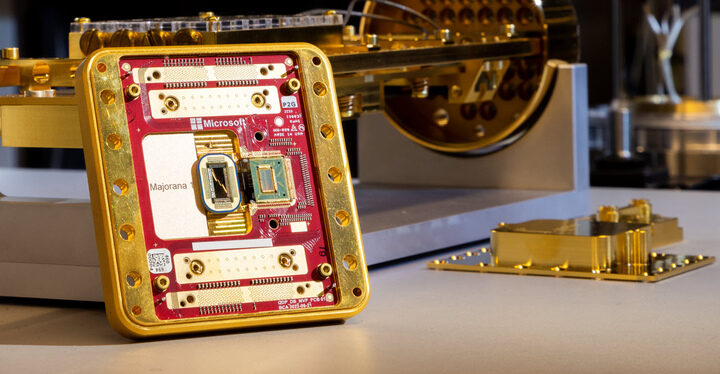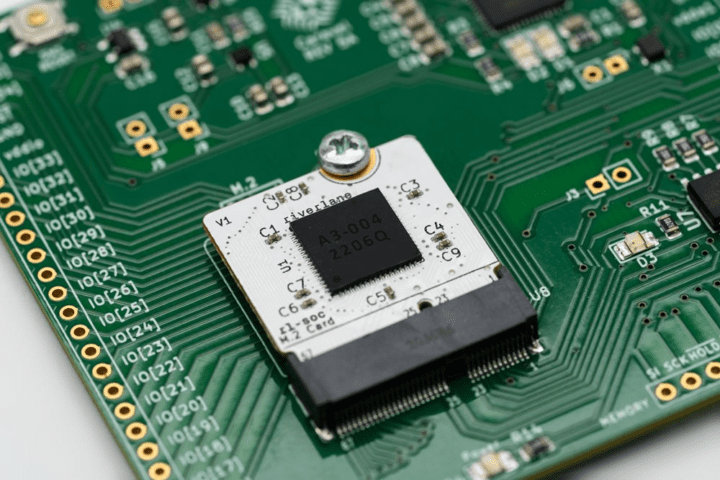London-based Quantum computing start-up, Quantum Motion, has raised £42m ($50.5m) in an equity round of funding led by Bosch Ventures, with participation from Porsche, the UK government’s National Security Strategic Investment Fund (NSSIF), and several investors. Quantum computing works on quantum bits (qubits), rather than atoms, promising to speed up what’s possible with computers by performing complex calculations in a fraction of the time. Use cases may include accelerating new drug discoveries or powering vast amounts of data processing required for AI applications. Quantum Motion was founded in 2017 by professors from UCL and Oxford University and aims to create scalable quantum computers through new computing architectures that are compatible with established silicon processing.
Silicon-based quantum chips and their compatibility
Quantum Motion is developing silicon-based quantum processors that can be produced at existing chip plants or fabs. The start-up uses CMOS technology to produce its processors, which is a semiconductor manufacturing method used to make memory chips, as well as devices such as mobile modems that process radio signals. Quantum Motion’s first processor, Bloomsbury, has a surface area of three square millimetres, uses quantum dots as qubits, and can store data as electricity with a different approach than traditional computers. Quantum Motion has designed integrated circuits that are capable of “generating, routing and processing signals at deep cryogenic temperatures” – operating at just a few tenths of a degree above absolute zero.
Competition within the quantum computing space
Quantum Motion’s latest raise comes amidst a flurry of activity in the quantum computing space, with other start-ups also securing funding. In the past month alone, French start-up Pasqal raised €100m, while Israel’s Quantum Machines closed its Series B round at $70bn, and Australia’s Quantum Brilliance secured $18m. Elsewhere over the past year, Finland’s IQM, France’s Alice&Bob and UK-based Quantum Circuits have all raised substantial amounts of VC cash. Quantum Motion and other start-ups are up against big tech players such as IBM and Google, who are investing heavily in quantum computing.
What is the company’s advantage?
“Compared to the big tech companies, our advantage is that we are agile, focused on a single goal and have a team that is comparable with the best in the world,” Palles-Dimmock said. “We have a highly skilled team across multiple disciplines including IC engineering, quantum theory, hardware and software, and deep relationships with world-leading universities that help us seek out that talent.”
- 490,000 Romoss Power Banks Recalled After Mid-Flight Fire Forces Emergency Landing
- Victoria Expands Deer Hunting to National Parks: 130,000 Hectares Open Despite Conservation Backlash
- Children with Autism and ADHD Process Common Plastic Chemical BPA 11-17% Less Efficiently
- Earth’s Rotation Accelerates: 3 Summer Days Lose 1.5 Milliseconds, Scientists Prepare for Historic Negative Leap Second
- Canada Aligns with US as TSA Ends 20-Year Shoes-Off Airport Policy to Cut 27-Minute Wait Times
Future of Quantum Motion
The additional funding will help Quantum Motion realise its vision of a quantum computer built using standard foundry processes, according to CEO James Palles-Dimmock. The support of leading technology investors enables the start-up to assemble a world-leading team and with the funding and support in place, ready to scale and deliver on its vision. The earliest impact of quantum computing will be in areas related to materials science, energy materials, chemistry such as drug discovery, or optimization, possibly stretching to logistics and transport. Being able to show that Quantum Motion’s approach to quantum computing doesn’t require data centres the size of football pitches, or vast CERN-type facilities, was one of the motivations behind the company’s central London location.

















